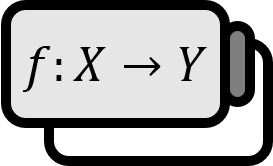Riemann Hypothesis
Conjecture
All non-trivial solutions of $\zeta (s) = 0$ will satisfy $\displaystyle \operatorname{Re} (s) = {{ 1 } \over { 2 }}$.
- $\zeta$ is the Riemann zeta function.
- $\re(z)$ denotes the real part of the complex number $z \in \mathbb{C}$.
Description
The Riemann Hypothesis is still an unsolved Millennium problem, and for those not familiar with mathematics, its significance, let alone the hypothesis itself, could be difficult to comprehend. If proven true, a vast number of theorems that are contingent on the hypothesis would also be verified as true. Beyond its significance, the reason why the roots of a not-so-simple function like the Riemann zeta function are located on an arbitrarily defined line such as $\displaystyle z = {{ 1 } \over { 2 }}$ sparks mathematical curiosity. While there are theories suggesting that if the Riemann Hypothesis were true, it would lead to the breaking of the RSA encryption system, this is not actually the case. However, it is true that it would provide quite good insights into the distribution of prime numbers.
Such stories have been introduced innumerably in a superficial manner, whether in mathematical walks or wikis, so there’s no intention to emphasize them significantly even here at LifeShrimpSushi. However, if one follows the theorems introduced in the posts of this category adequately, one would accurately understand what the non-trivial zeros of Riemann zeta function are and the equation in question:
- Beta and Gamma functions
- Euler’s limit formula
- Weierstrass’s infinite product
- Euler’s representation of the sinc function
- Euler’s reflection formula
- Trigonometric representation of the beta function
- Legendre’s duplication formula
- Fourier transform
- Fourier transform of a Gaussian function
- Poisson summation formula
- Jacobi theta function
- Riemann zeta function
- Riemann xi function
- Non-trivial zeros of the Riemann zeta function
The Heart of a Calculator












